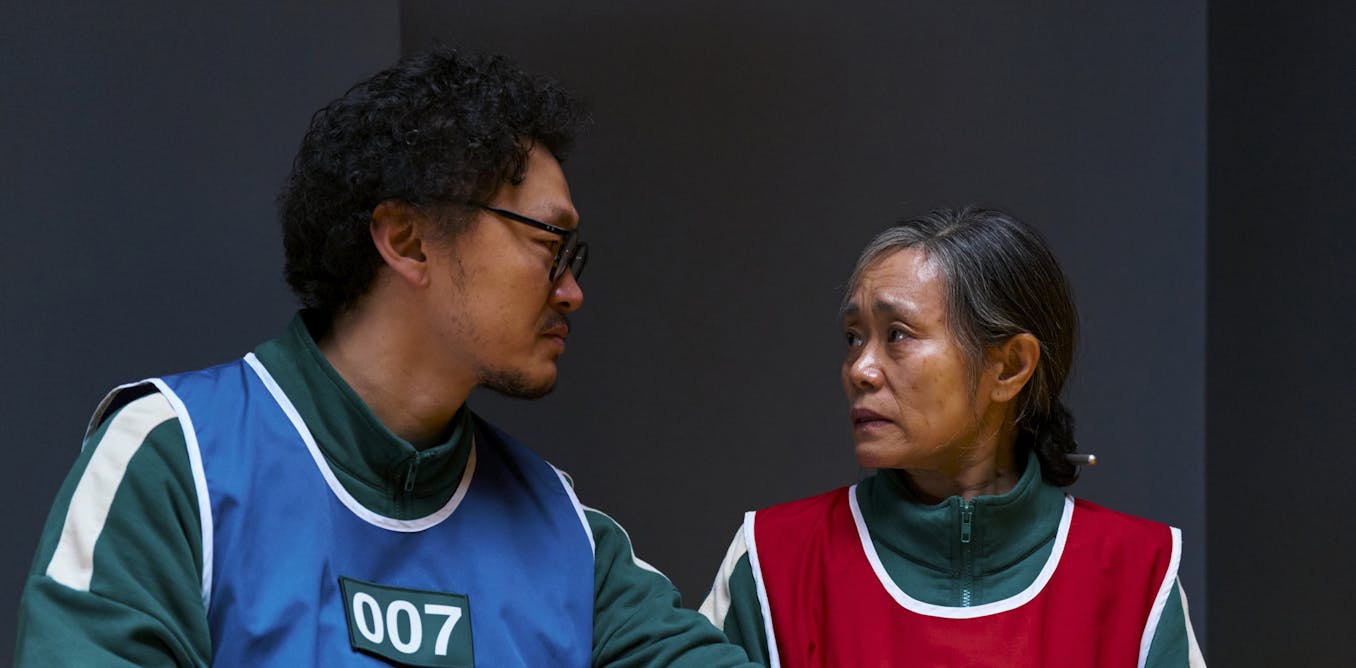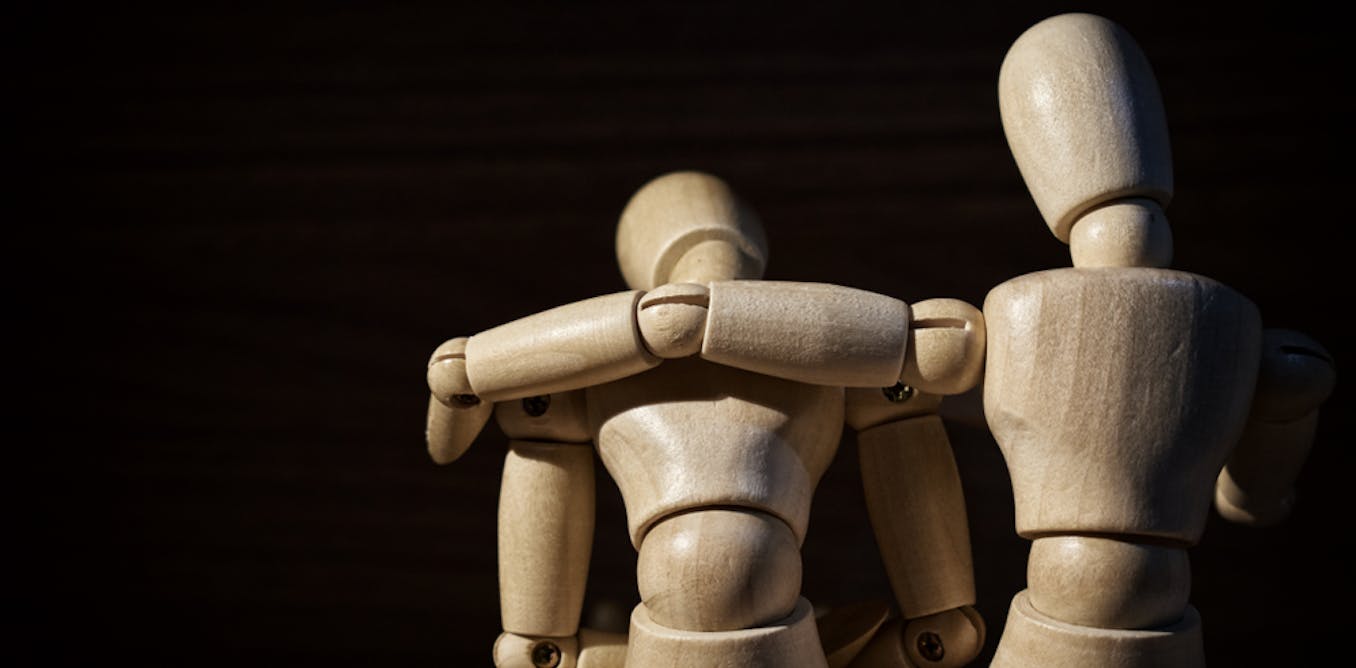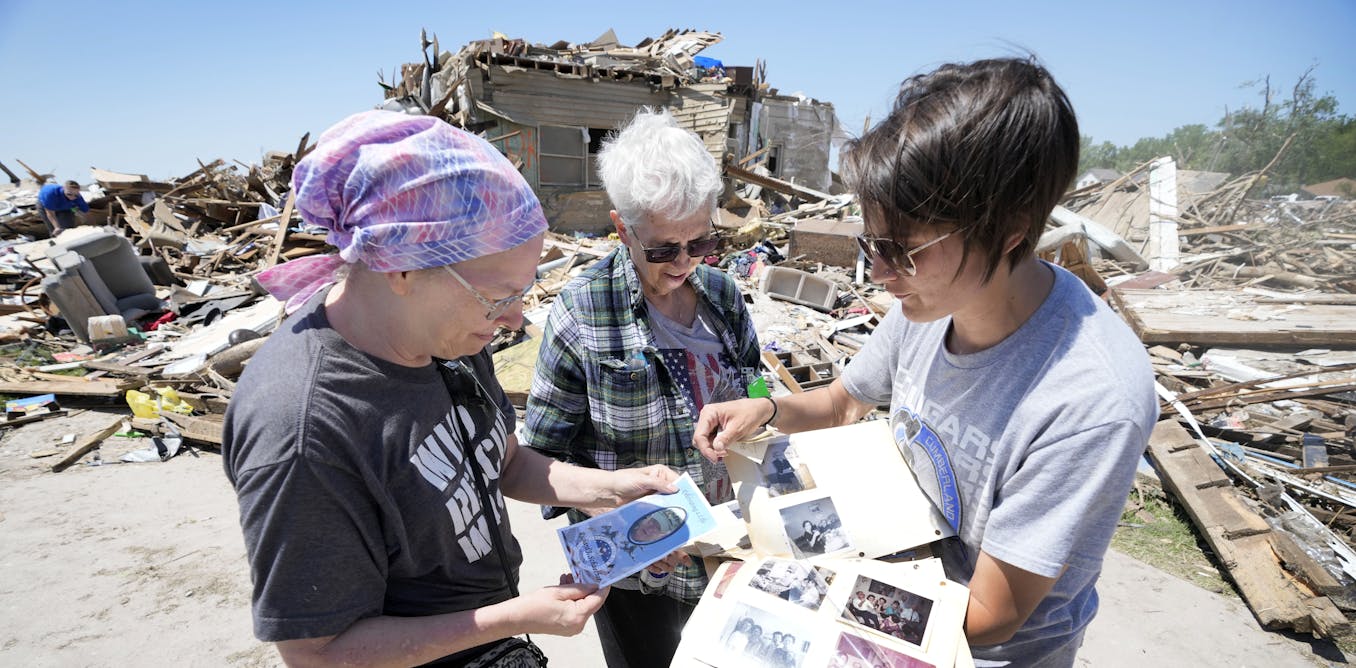How to Build Democracy — in an Authoritarian Country | Tessza Udvarhelyi | TED
How to Build Democracy — in an Authoritarian Country | Tessza Udvarhelyi | TED
The video “How to Build Democracy — in an Authoritarian Country” by Tessza Udvarhelyi discusses the slow erosion of democracy in Hungary and the importance of grassroots activism and community involvement in fighting authoritarian governments. Udvarhelyi describes living in an authoritarian country as being similar to the metaphor of the boiling frog – the heat is turned up slowly until the situation becomes dire.
Udvarhelyi details the ways in which the right-wing government in Hungary has undermined democracy by promoting nationalism, racism, and homophobia, as well as enacting anti-worker and anti-LGBTQ laws. Despite these challenges, she emphasizes the importance of staying and fighting for social justice and democracy in her home country.
The speaker also challenges viewers to consider the state of their own countries and their level of personal power and involvement in effecting change. She stresses that democracy is not just a concept, but an ongoing process that requires active participation and dissent.
Furthermore, Udvarhelyi highlights the importance of grassroots movements and community activism in creating change. She shares her personal experience of being involved in a grassroots housing movement that successfully challenged an anti-poor mayor and created a new relationship between the municipality and its residents.
Ultimately, Udvarhelyi’s message is one of hope and empowerment – she encourages viewers to imagine and work towards a different future, one that is built through everyday acts of resistance and political struggle.
Watch the video by TED
What does living in an authoritarian country and a frog have in common? I’m sure you’ve heard about the metaphor of the boiling frog that gets slowly cooked until it dies without even noticing. Well, this is what Hungary has felt like for the past 13 years. After 40 years of state socialism,
We started out with a lukewarm democracy in the 1990s. It was not a democratic paradise, but it was a more or less functioning democracy. In 2010, a right-wing government came to power, and they have been elected three more times since then. This government has taken the most dangerous aspects of our culture
And made them the main pillars of their politics: nationalism, racism, homophobia, a disdain for poor people and the general fear and suspicion of “others.” Today, Hungary is in the gray zone between a dictatorship and a democracy. This did not happen overnight.
The heat was turned up under us slowly, but with a very firm hand. I can’t count how many times I have heard people say, “They will not go that far. This will never happen.” We said this before they made homelessness a crime in the Constitution. We said this before they passed
One of the most anti-worker labor laws of Europe, nicknamed the “slave law,” which allows an extreme exploitation of workers. We said this before they turned our LGBTQ friends and family into internal enemies, reduced same-sex couples to second-class citizens, and banned sexual education from schools in the name of protecting children from pedophilia.
And we also said this before they fired, censored and intimidated teachers for telling the truth about their wages and working conditions and teargassed high-school students for protesting for quality education. But in the end, all of these things and many more have all happened. Hungary is not the worst country in the world.
It’s a member of the European Union. It’s considered a high-income economy. It has regular elections, and it still has some independent media. But it’s definitely authoritarian when it comes to how the government relates to the people and how most people relate to the government.
A lot of people give up and leave our country not only for economic, but also for political reasons. I also often get the question, “Why are you still here?” But my answer is very easy. This is my home. This is where I belong.
This is where I was fighting for social justice and democracy before this regime came to power, and this is where I will continue to work for the very same things after they are long gone. If you ask government propaganda about me,
I’m a public enemy and the foreign agent who is trying to destroy Hungary. This is why they have been harassing, smearing and targeting me over the past 10 years. If you ask me about the government, they are a bump in the road. A Himalaya-size bump, but one that we will definitely overcome.
And I want to stop for a moment here. I’m not talking about my country to make you feel sorry for us. Instead, I would like you to think about the place where you live. Do you have a say in how things are happening there? Do you feel you have power?
And I’m not asking you if you can vote or if you have a constitution, because we have both and we still don’t have democracy. What I’m asking you is whether it’s ever possible to achieve change from below. Democracy is not a noun, but a verb. It only exists if we do it.
This is the slogan of the School of Public Life, an activist school that I co-founded. In this school, we believe that democracy is not about consent, but about dissent. It’s not about being a big, happy family where everyone loves and agrees with each other. If there is conflict, struggle and change,
There is a space for democracy to exist. It’s always in the making, and we are the ones making it. When I go abroad and tell people that I’m from Hungary, I get some sad looks. And the question, “Oh what’s the name of your dictator again?” And yes, our Prime Minister has become a symbol of anti-democratic leadership. But there is also another Hungary. This Hungary is hardly visible to the outside world. And you may never read about us in The New York Times, but it’s there and it’s made up of many, many people and organizations
Working for social justice, environmental justice, workers’ rights and quality public services, among many other things. In fact, many Hungarians are not aware of this other side of Hungary. And this, I believe, is a real obstacle to change. What you see around us as your reality determines what you believe is possible.
If you only see fear and passivity, you will not be able to imagine anything beyond that. But if you experience alternatives to social and political oppression, you will be able to not only imagine, but create a different future for all of us. Let me give you an example of this other Hungary
That’s especially close to my heart. “The City Is for All” is a pioneer of the Hungarian housing movement, where homeless people and their housed allies work together for housing justice. What makes this group really special is that it takes the message “don’t talk about us, talk with us” extremely seriously.
In this group, many homeless people gained back their self-confidence, sense of belonging and political identity, all of which are essential for all of us to exercise our rights as citizens. In this group, people like my friends Gyula, Jutka, Jani and Erika have all become movement leaders,
Even as they were living in self-made shacks, homeless shelters, rented rooms or even on the street. And most importantly to me, this is also the community where my own political journey started. In 2011, activists of The City Is for All occupied the mayor’s office of the 8th district of Budapest. With this sit-in,
We tried to stop the violent criminalization of homelessness by the chief anti-homeless strategist of the government, who also happened to be the mayor of the district at the time. I was one of the organizers of this protest, and in the end, we were all dragged out of the building by the police.
With a very unexpected turn of events, today, I work in the very same building that we had occupied more than ten years ago. I walk the same corridors, and I have meetings in the mayor’s office. But how is this possible, how did this happen? In 2019, a progressive candidate
From a local grassroots organization challenged the anti-poor mayor in the local elections. And to everybody’s biggest surprise, including our own, he won. I was on the mayor’s team, and today I work with him as the head of the Office of Community Participation. The mission of this office is to create a new relationship between the municipality and local residents. A relationship based on mutual trust, power sharing and respect. This is the complete opposite of what the central government is doing. Let me give you an example of this new relationship.
In our district, there is a small community garden. A year ago, it was surrounded by a fence and there were plans to build a luxury condo there. Everybody thought that it was private property because of the fence. But then came a group of active citizens
Who discovered that the fence had been built illegally. They started to lobby the municipality to pull the fence down and give the land back to the public. They were adamant and, from a bureaucratic point of view, really annoying. But in the end, they reached their goal. The fence was pulled down,
They created a garden which is now sustained by local neighborhood residents. This is a very small everyday example, and this is exactly my point. Democracy emerges out of the everyday struggle that we call politics. It’s created both from above and from below. Those in power have to be open, responsive and responsible.
People, on the other hand, have to be smart, organized and focused on getting what they need. This is exactly what the story of the garden is all about. Let me give you another example. In Hungary, the central government is all about concentrating power and resources for its own interests.
People have absolutely no say in how they spend public money. But things are radically different in both Budapest and our own small 8th district, which are both led by the Democratic opposition. A few years ago, participatory budgeting was introduced in both the city and the district. Participatory budgeting means
That local residents get to directly decide how to spend a certain amount of the municipal budget. In reality, this means that politicians give up some of their power because they believe that local residents know best what they need. And they really do. Local people often vote on things
That elected representatives are otherwise reluctant to do. People in Budapest have used this power to build new bus stops, crosswalks, public toilets and even launch new social and cultural programs. I know, you may be thinking now. “I have never had the say in how my city spends my tax money.
So why are you complaining about Hungary?” But remember, I’m showing you a small island of freedom in the middle of a country with less and less political oxygen to breathe. By opening up the municipal budget in Budapest, we are modeling, learning and teaching a new kind of politics
That builds an alternative to authoritarianism. Let me go back to the boiling frog. Have you ever felt like this frog? And why is the frog not doing anything? And where are the other frogs, and why are they not doing anything? You can’t just be sitting around and wait for democracy to work miraculously on its own. It will not. And you can never wait for somebody else to make democracy work for you. They will not. Only you can make democracy work by standing up, organizing and pushing the boundaries of what’s possible politically.
Just like we Hungarians have to fight for our own freedom and rebuild our own democracy, you all have to do the same, no matter where in the world you are sitting, in lukewarm or even boiling water. Enjoy your democracy when you have it, but don’t ever get too comfortable with it.
Remember the frog and never take the temperature of the water for granted. Thank you. Chloe Shasha Brooks: Tessza, thank you for that beautiful, powerful talk. I have one follow-up question for you. There is a sentiment in your talk that I really love that’s shared by others here today. This idea, actually, I’ll quote you. You said, “If you asked me about the government,
They are a bump in the road, a Himalaya-size bump, but one we will definitely overcome.” I’m wondering how you keep that sentiment alive and how that affects your activism. TU: So I think one of the most dangerous forms of oppression is when they oppress your imagination,
When you are not able to imagine anything beyond what’s actually happening to you. And one of my missions, I think, in life, is well, I have a really strong personal and political imagination. So one of the missions in my life is to try to teach other people to acquire this ability to imagine,
To imagine that things can be different. And for example, we do this by trying to show Hungarians that they have a really rich history of social movements. That change was actually brought about in Hungary through social movements. And we are also helping people through our political work and education work.
We are trying to show them a different version of what’s possible, and helping them to inhabit the space that exists between what is now and what could be, and trying to teach them the way to get there. CSB: That’s really amazing, thank you so much for your talk. TU: Thank you.
About TED
The TED Talks channel features the best talks and performances from the TED Conference, where the world’s leading thinkers and doers give the talk of their lives in 18 minutes (or less). Look for talks on Technology, Entertainment and Design — plus science, business, global issues, the arts and more. You’re welcome to link to or embed these videos, forward them to others and share these ideas with people you know.
Video “How to Build Democracy — in an Authoritarian Country | Tessza Udvarhelyi | TED” was uploaded on 01/11/2024 to Youtube Channel TED



































